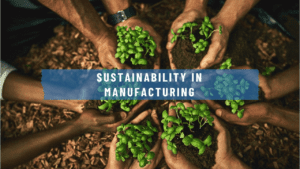By Rajul Malde
The prevailing economic turbulence coupled with challenging policy and operating environments demand that key sectors like manufacturing re-think their long-term strategies. Innovation is one such strategy as it involves coming up, not only with new products, but also resilient business models to drive future business sustainability.
It sounds counter-intuitive to urge companies to innovate during tough economic times, considering innovation costs time, money and resources. However, various authoritative reports appear to suggest businesses that embrace a creative mindset during crisis tend to emerge stronger, more competitive and better equipped to harness future growth opportunities.
Given the current situation in Kenya and globally, innovation is evidently a strategic priority for manufacturers as they seek to counter the negative impact of the high cost of living on consumer spending, made worse by shrinking financial margins due to escalating cost of production.
To retain customers, cut costs and boost productivity, manufacturers are coming up with ingenious ways to make their products more attractive to consumers and grow revenue. Despite the tough economy, some are opting to invest in more efficient, state-of-the-art technology as they shift to innovation-led production.
Both consumers and manufacturers benefit from this approach. First, consumers get value for money by buying better quality, safer, more affordable and environmentally-friendly products, despite less spending power due to inflation. What this means, for example, is that I can purchase a detergent that cleans my dishes and clothes better, using less water and is softer on my skin, at the same or reduced price compared to the brand I have been using.
Second, innovation helps manufacturers build stronger relationships with consumers by addressing their personal desires and preferences. For instance, if I embrace healthy cooking as part of lifestyle changes, I should be able to get edible oil products that address that specific need on the supermarket shelves.
Third, investing in innovative technologies gives companies a competitive edge through reduced cost, enhanced efficiency and productivity. In this era of disruptive digital technology, industries are turning to artificial intelligence, robotics, Big Data and other modern industrial software applications to streamline and enhance processes.
Such inventive methods help businesses gain deeper insights into customer’s purchase and consumption behaviors thus helping improve products where necessary to address these unique traits. This also facilitates diversification targeting specific demographics and tastes.
It is for the foregoing reasons that local consumer manufacturing companies are now increasingly turning to innovation as a proven strategy for long-term growth even as the economy continues to struggle against the backdrop of a projected global recession. Leading by example, Pwani Oil has recently invested in a new factory plant to help diversify its product portfolio in addition to creating more jobs for Kenyans.
The new plant is designed to be environmentally sustainable and adheres to stringent manufacturing standards thus ensuring the highest level of safety for users. It is also designed to minimize environmental impact, for example, recycling water to reduce pressure on the water table. Rainwater harvesting in conjunction with water purifiers help to replenish supply to the plant.
Investing in research and development (R&D) is not only good for the company but society as a whole taking into account social benefits such as access by the public to quality, safe products and a cleaner environment. In a nutshell, manufacturing commitment to innovation must go hand-in-glove with dedication to safety and environmental responsibilities.
Mr. Malde is Commercial Director, Pwani Oil Products Limited



